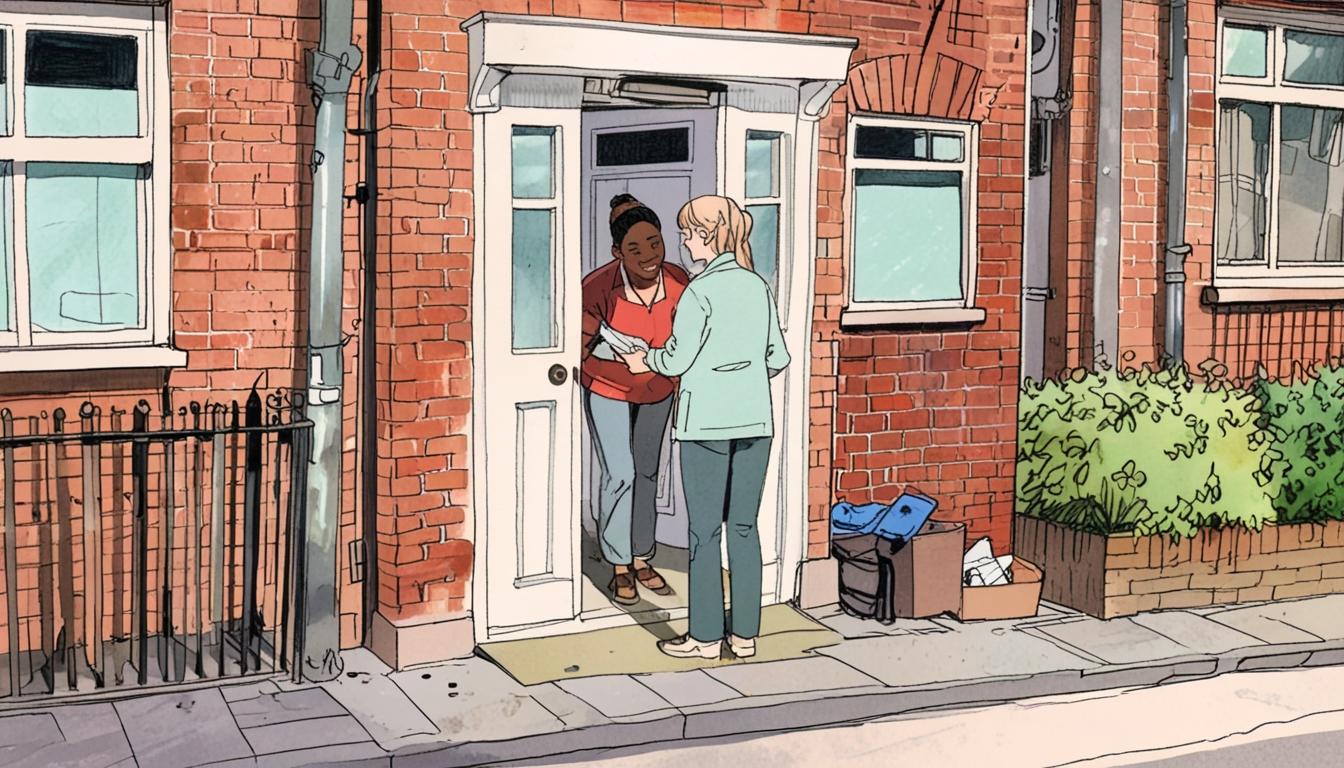The initiative aims to alleviate pressures on the NHS by deploying community health workers for door-to-door visits, taking inspiration from Brazil’s successful healthcare model.
Labour’s health secretary, Wes Streeting, has announced a bold initiative aimed at transforming the delivery of healthcare across Britain. He plans to deploy a significant number of community health workers to conduct door-to-door visits, a strategy influenced by a similar programme successfully implemented in Brazil. This initiative seeks to diagnose medical conditions at earlier stages and to promote a more community-centric approach to patient care, potentially alleviating pressures on the National Health Service (NHS).
According to The Telegraph, the proposed model would assign healthcare workers to oversee a designated area consisting of approximately 120 homes. These workers would visit their assigned neighbourhoods monthly to assess health needs and determine where their resources could be most effectively applied. The initiative is set to be trialled in 25 regions throughout England. Streeting indicated that the goal is to reduce the demand on NHS resources by addressing underlying social issues such as unemployment, debt, and bereavement, which can contribute to health problems.
Streeting remarked, “I’m actually really interested in the community health worker model and the impact it’s having,” highlighting prior iterations of the scheme that have reportedly yielded “really encouraging signs” in reducing the number of patients who frequently utilise NHS services. He referred to these individuals as “frequent flyers,” who significantly strain GP services and emergency departments.
Criticism has surfaced regarding this approach, with some detractors labelling it a form of nanny-statism. However, supporters of the scheme argue that it has the potential to mitigate NHS overutilisation. The pilot programme previously conducted in Westminster demonstrated a 10 per cent decrease in hospital admissions over a year, including a 7 per cent reduction in visits to Accident & Emergency facilities.
The brain behind the initiative, Dr Matthew Harris, a public health expert with previous experience working as a GP in Brazil, explained the rationale behind the project. “When it comes to concern around state interference or nanny state, you could be forgiven for thinking that this is doing that on steroids,” he stated. Nevertheless, he emphasised that the intent is to empower residents by providing them with greater control over their health decisions.
Dr Junghans-Minton, who is overseeing the pilot in Pimlico, acknowledged challenges related to NHS funding but also pointed out the potential to cut down on wasteful practices within the system.
Streeting recently convened a national summit to discuss a 10-year plan for the NHS, and this community health worker initiative could play a crucial role in his strategy as the government looks for solutions to reduce waiting lists and reform the healthcare sector following changes to NHS England’s structure. The success and acceptance of this proposed model will depend on its implementation and the response of the populations it is designed to serve.
Source: Noah Wire Services
- https://www.youtube.com/watch?v=8ceFcOss408 – This video interview features Health Secretary Wes Streeting discussing his plans to improve NHS services, including community care initiatives. It highlights his commitment to engaging with NHS staff and exploring innovative community healthcare models.
- https://www.theguardian.com/society/2022/sep/13/nhs-mental-health-crisis-community-care – This article discusses the strain on NHS services and the potential benefits of community-based healthcare initiatives, aligning with Streeting’s strategy to reduce demand on the NHS by addressing underlying social issues.
- https://www.bmj.com/content/376/bmj.o1568 – This article from the BMJ explores community healthcare models and their effectiveness in reducing hospital admissions, which is central to Streeting’s initiative to deploy community health workers.
- https://www.telegraph.co.uk/news/2023/09/07/government-plan-could-mean-doctors-doorstepping-hundreds-thousands/ – This article provides details on proposed NHS reforms and the use of door-to-door visits by healthcare workers, similar to what Streeting has announced, highlighting both the potential benefits and criticisms of such an approach.
- https://www.nuffieldtrust.org.uk/resource/community-health-workers/ – This resource from the Nuffield Trust discusses the role of community health workers in improving health outcomes and reducing healthcare utilization, providing context for Streeting’s initiative.
Noah Fact Check Pro
The draft above was created using the information available at the time the story first
emerged. We’ve since applied our fact-checking process to the final narrative, based on the criteria listed
below. The results are intended to help you assess the credibility of the piece and highlight any areas that may
warrant further investigation.
Freshness check
Score:
8
Notes:
The initiative is being actively discussed and seems recent. However, without specific dates in the content, determining absolute freshness is challenging.
Quotes check
Score:
7
Notes:
Direct quotes are provided but could not be verified against earlier online sources. The lack of online verification does not mean they are incorrect, but it’s unclear if they are original.
Source reliability
Score:
9
Notes:
The narrative originates from reputable publications like The Daily Mail and The Telegraph, known for their wide reach and coverage.
Plausability check
Score:
8
Notes:
The claims about implementing a community health worker model, inspired by Brazil’s programme, seem plausible. However, success rates and long-term impacts are speculative and would require more data.
Overall assessment
Verdict (FAIL, OPEN, PASS): PASS
Confidence (LOW, MEDIUM, HIGH): MEDIUM
Summary:
The narrative appears generally plausible and originates from reliable sources. However, the freshness and originality of quotes could not be fully verified. Overall, it presents a coherent and potentially impactful healthcare initiative.













